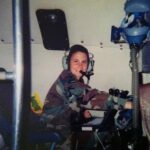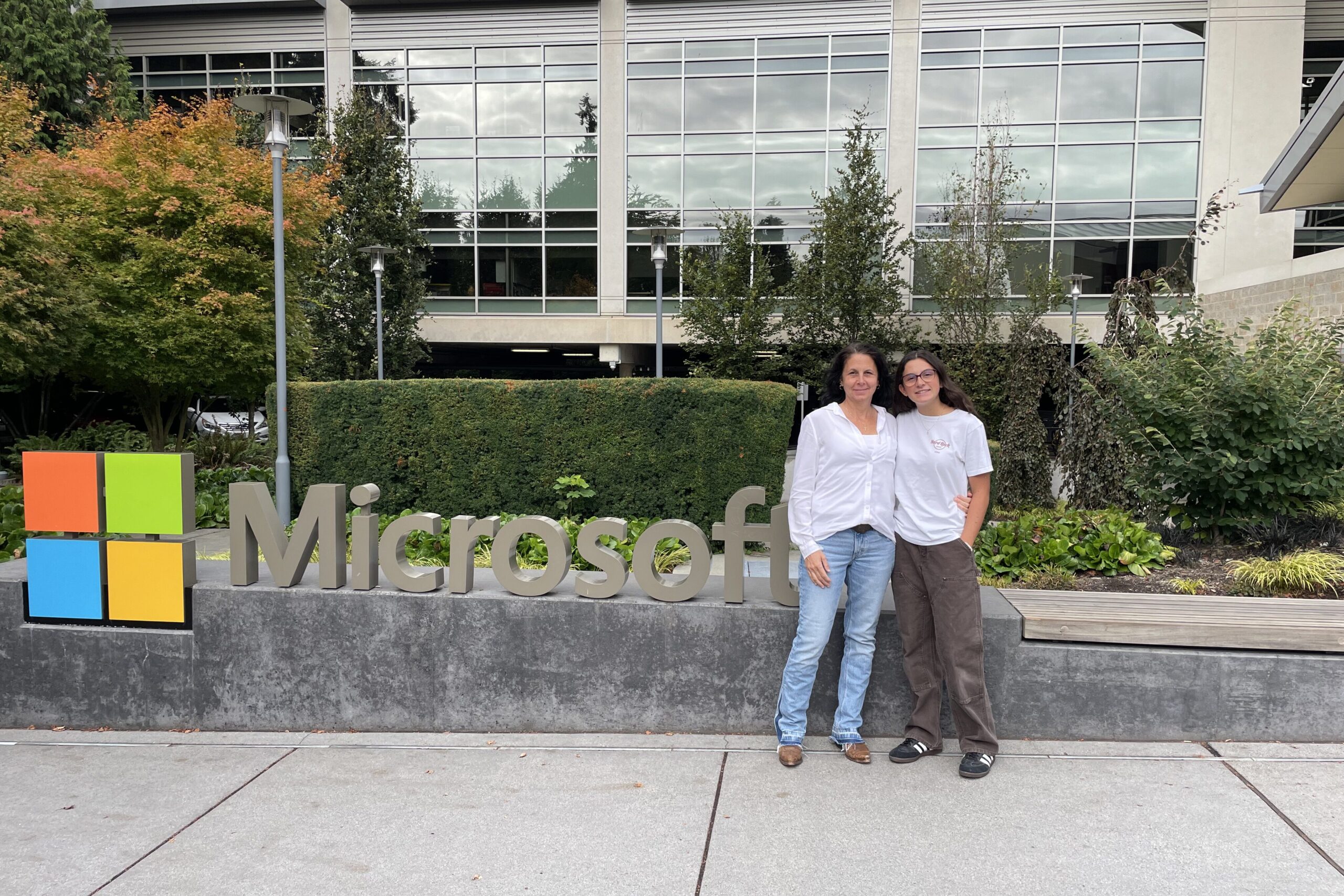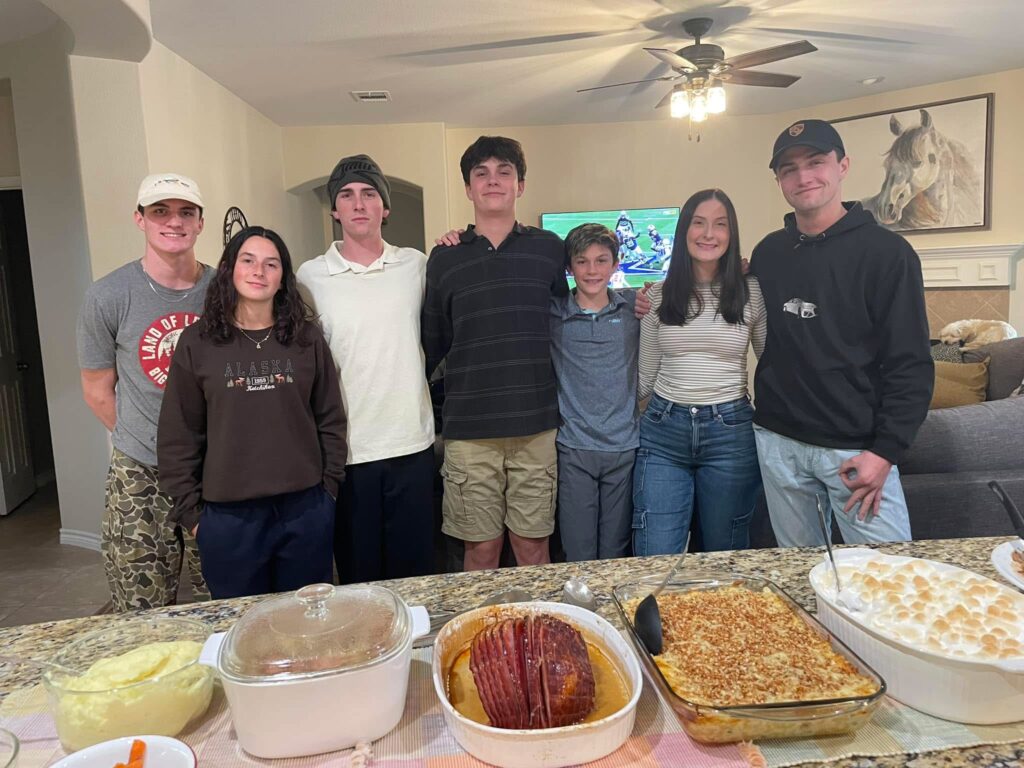The transformative power of mentorship
Within the MSSA community, mentorship significantly helps veterans transition smoothly into civilian careers. In this blog post, software engineer Basia M. shares highlights from her work as an MSSA mentor—including the skills she focuses on with her mentees, and a handful of success stories, highlighting the transformative impact of mentorship.
Imagine transitioning from a life of structure and discipline in the military to the uncertainty of civilian life. Whether you’re leaving the service or returning to work after a long break—like I did after 20 years—it can be daunting, especially when the military is all you’ve known.
This is where mentorship can make all the difference.
As a former participant myself, the MSSA program played a profound role in shaping both my career and personal growth, helping me build a strong professional identity. Becoming a mentor isn’t just about giving back to the MSSA community that had (and still has!) my back—it’s about finding purpose and making a meaningful difference for others as they pivot their careers.

I wanted to provide the support and encouragement that were crucial for me in navigating my own career change.
MSSA mentor Basia M. at work in her days in the U.S. Air Force
MSSA participants bring an exceptional set of skills from their military careers—leadership, adaptability, resilience, discipline, strategic thinking, problem-solving, attention to detail, and teamwork. These “unteachable” attributes position them to excel in any workplace and make them highly sought after in the job market. However, many participants view these skills as typical and fail to recognize their true value.
Empowering MSSA participants to define and articulate their personal brand is a cornerstone of the program. My mentoring approach focuses on uncovering and showcasing their unique strengths, values, and experiences.
- Recognizing their skills
Military veterans often underestimate their abilities, viewing them as commonplace. I emphasize the breadth and uniqueness of their skills, helping them understand their professional value. - Showcasing their skills
I work with mentees to incorporate these strengths into their interview responses and resumes, so they can clearly convey their experience in a way that aligns with the roles they’re applying for.
Moments that make it worth it
One standout moment involved practicing interview questions. As a student answered the question, I noticed they spent excessive time describing peripheral details. To help this veteran focus their response, we practiced the STAR(T) method—Situation, Task, Action, Result, and what it Taught you.

I shared my approach to using this framework—keep the situation and task brief, just enough to give the interviewer context. Most of the time should be spent on the action taken, the result, and what it taught you, because that’s where the real substance of the answer lies.
As we replayed their answer, I could see the realization on my mentee’s face. She lit up as she understood how to structure her answers for greater efficacy and saw how easy it was—because she was the one most familiar with the situation. We walked through each step, practicing in real time how to pivot and incorporate key points she wanted to share, even if they weren’t directly asked. This approach helped her understand that an interview is essentially a conversation.
What made this session even more impactful was that her fellow classmates benefited from the demonstration and the discussion that followed. Seeing the STAR(T) method in action and understanding how to navigate an interview with confidence provided them with valuable insights they could apply to their own interview preparations.
In another memorable instance, a veteran was referred to me by a friend and former MSSA classmate. He reached out seeking guidance on the MSSA interview process. I emphasized the importance of showing enthusiasm for the program, being open to learning and growth, and giving 110% effort throughout the five-month course. His hard work and willingness to apply the advice helped him prepare for the interview and secure a spot in MSSA.
As an MSSA participant, he continued to seek my guidance, demonstrating his dedication and coachability. After graduating from MSSA, he secured a summer internship at Northrop Grumman, which he followed with internships at Amazon and NASA before being accepted as an intern at Microsoft. His hard work and determination were instrumental in his success, and witnessing his journey has been incredibly meaningful to me.
Another veteran—then on active duty in the Air Force—reached out to me on LinkedIn after noticing my affiliation with the MSSA network. He was transitioning into a career in software development and asked for advice on navigating the MSSA program. We arranged a call, and I shared insights about the application process, including tips and strategies for passing the prerequisite certification exam, which he passed the following month. I helped him prepare for his MSSA interview, highlighting the importance of being adaptable, showing genuine enthusiasm for IT, and being authentic. Unsurprisingly, he was accepted into MSSA and began the program.
Throughout his time in the MSSA program, I supported him by offering study strategies and encouragement, advising him on resume building and interview techniques, and helping with mock interviews. As a result of his hard work and tenacity, he secured a Junior Software Engineer position at Booz Allen Hamilton. I was proud to learn he was recently accepted into the Microsoft Leap program, where he is currently gaining hands-on experience and further honing his skills.
Closing thoughts
Mentoring through MSSA has been one of the most rewarding ways I’ve been able to give back. Supporting fellow veterans, watching their confidence grow, and celebrating their achievements has given me a renewed sense of purpose. If you’re considering becoming a mentor, I encourage you to take the leap—you’ll not only make a real impact, but you may also be surprised by how much it means, not just to your mentees, but to you as well.

As a Software Engineer at Microsoft, Basia works closely with enterprise customers to help solve technical challenges and improve their products. Her role involves developing and testing software systems, using Agile methodologies, and partnering with Microsoft product engineers to tackle novel issues.
